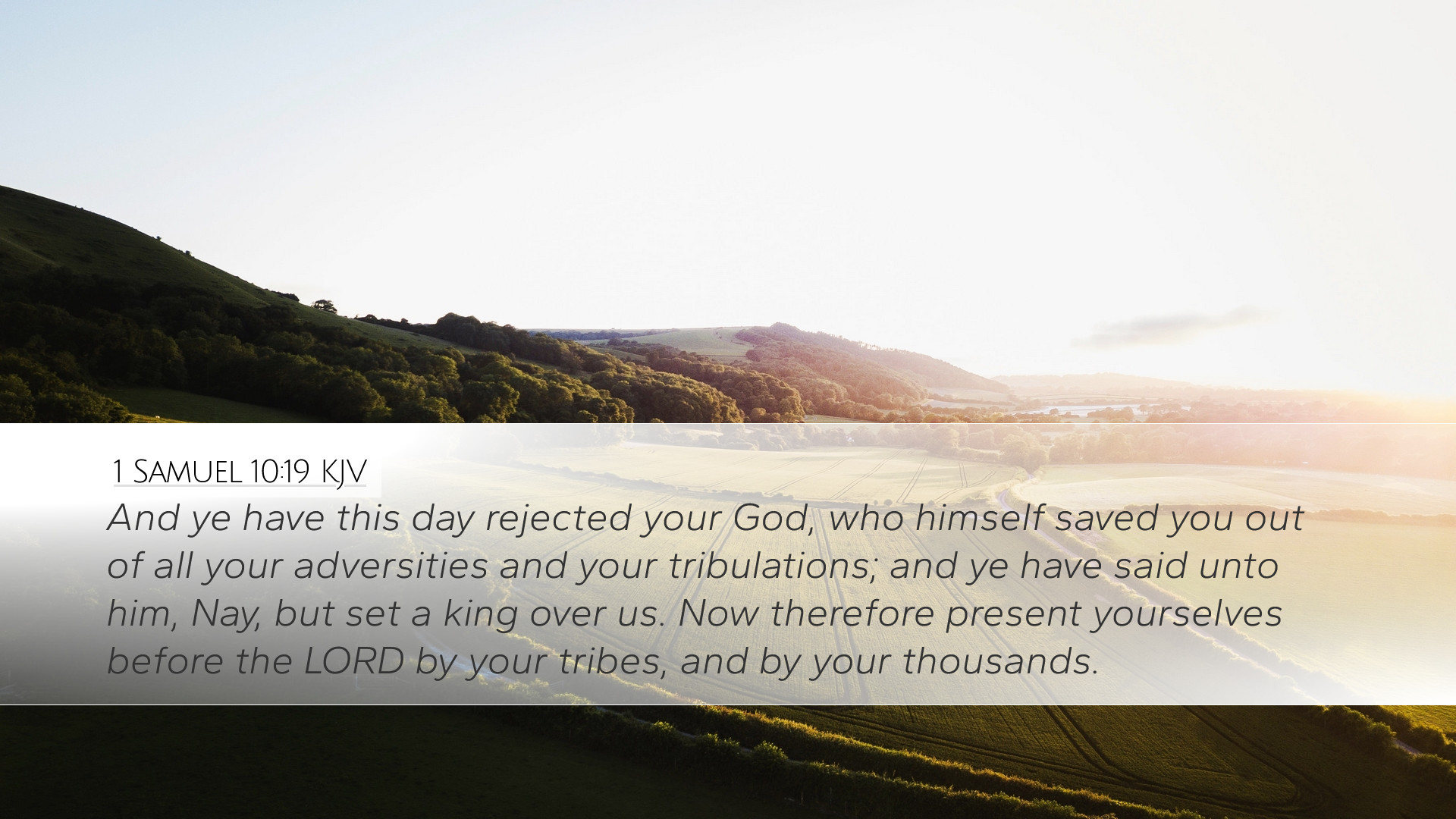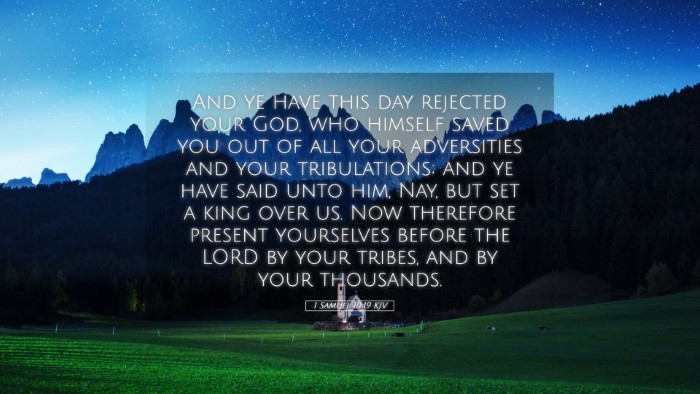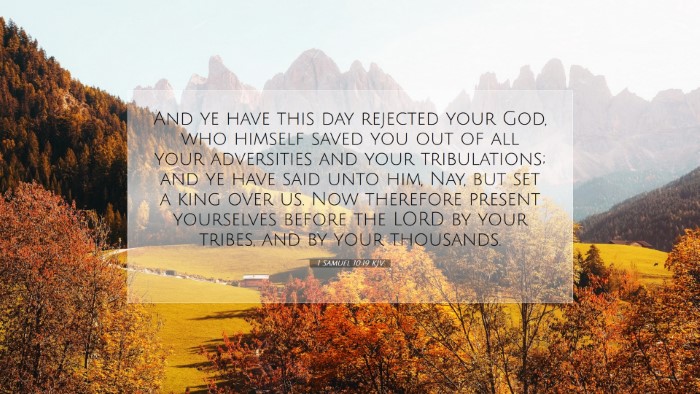Commentary on 1 Samuel 10:19
Verse: "But you have this day rejected your God, who himself saves you out of all your adversities and your tribulations; and you have said to Him, 'You shall set a king over us.' Now therefore, present yourselves before the Lord by your tribes and by your thousands."
Contextual Background
The request for a king in Israel emerges from a critical moment in the nation's history. Israel, once governed directly by divine kingship, now seeks a human monarch. This transition marks a significant shift away from reliance on God's sovereign rule towards human authority.
Matthew Henry explains that the people of Israel demanded a king due to the failures of Samuel's sons, who did not walk in the ways of their father, leading the people to feel unjustly ruled. Their desire for a king indicated a rejection of God’s unique position as their ultimate sovereign.
Analysis of Rejection
Henry points out that the phrase “you have rejected your God” highlights the seriousness of this demand. This rejection is not merely minor discontent; it is fundamentally a choice to forsake the very deity who delivered them from slavery and adversity.
In this call for a king, the Israelites displayed a significant spiritual blindness, choosing to ignore the divine providences and past deliverances. Barnes emphasizes the gravity of such a rejection, noting that the Israelites were turning from God’s direct involvement in their governance.
God's Deliverance
The verse makes clear that God is the ultimate savior of Israel. Despite their desire to establish a monarchy, God had consistently rescued them from adversities. Adam Clarke elaborates on the idea that every tribulation they faced was a divine opportunity for God to demonstrate His saving power, illustrating the deep spiritual implications of their new direction.
Clarke adds that recognizing God as their protector should have instilled in them the wisdom to trust in His sovereignty rather than seeking a human leader. This rebellion against divine kingship constituted a profound misunderstanding of their identity as God’s chosen people.
The Human King
This verse foreshadows the complications that come with establishing a human monarch. According to Henry, though God allows their request, the ensuing kingship would lead to failures and ultimately a series of disastrous consequences. It underscores the futility of placing trust in human authority over divine guidance.
Barnes further elucidates that the people’s choice carries tangible implications, marking a transformation in their relationship with God. Rather than acting in faith by relying on God’s guidance, they choose to align themselves with the political structures of surrounding nations.
Call to Repentance
The phrase “present yourselves before the Lord by your tribes and by your thousands” serves as both a call to accountability and an opportunity for repentance. Clarke interprets this as God’s way of reminding them of their communal identity and their collective obligation to follow divine leadership.
This gathering can also be seen as a divine assessment of the people's hearts—highlighting the necessity of introspection. Henry adds that this assembly reminded Israel that God remains the supreme ruler, even amidst their desire to adopt human authority.
Theological Implications
1 Samuel 10:19 invites profound theological reflections pertinent for pastors, students, and scholars. It raises critical questions regarding the nature of authority and governance in the lives of believers.
- Divine versus Human Authority: The text encourages discussions on the tension between divine authority and human government, particularly in contemporary contexts.
- Spiritual Blindness: The reality of spiritual blindness as evidenced in Israel’s choice serves as a cautionary tale against the allure of worldly standards over divine ordinances.
- Identity and Deliverance: The verse reinforces a believer's identity rooted in God’s deliverance, reminding them that reliance on human structures may lead them away from recognizing God’s active involvement in their lives.
Conclusion
In conclusion, 1 Samuel 10:19 serves as a pivotal moment in Israel’s narrative, reflecting a deep spiritual and theological crisis. It calls for self-examination among believers and serves as a reminder of the dangers of placing their hope in human institutions. This verse can encourage contemporary Christians to seek deeper communion with God, recognizing His sovereignty over all aspects of life, including leadership and authority.


